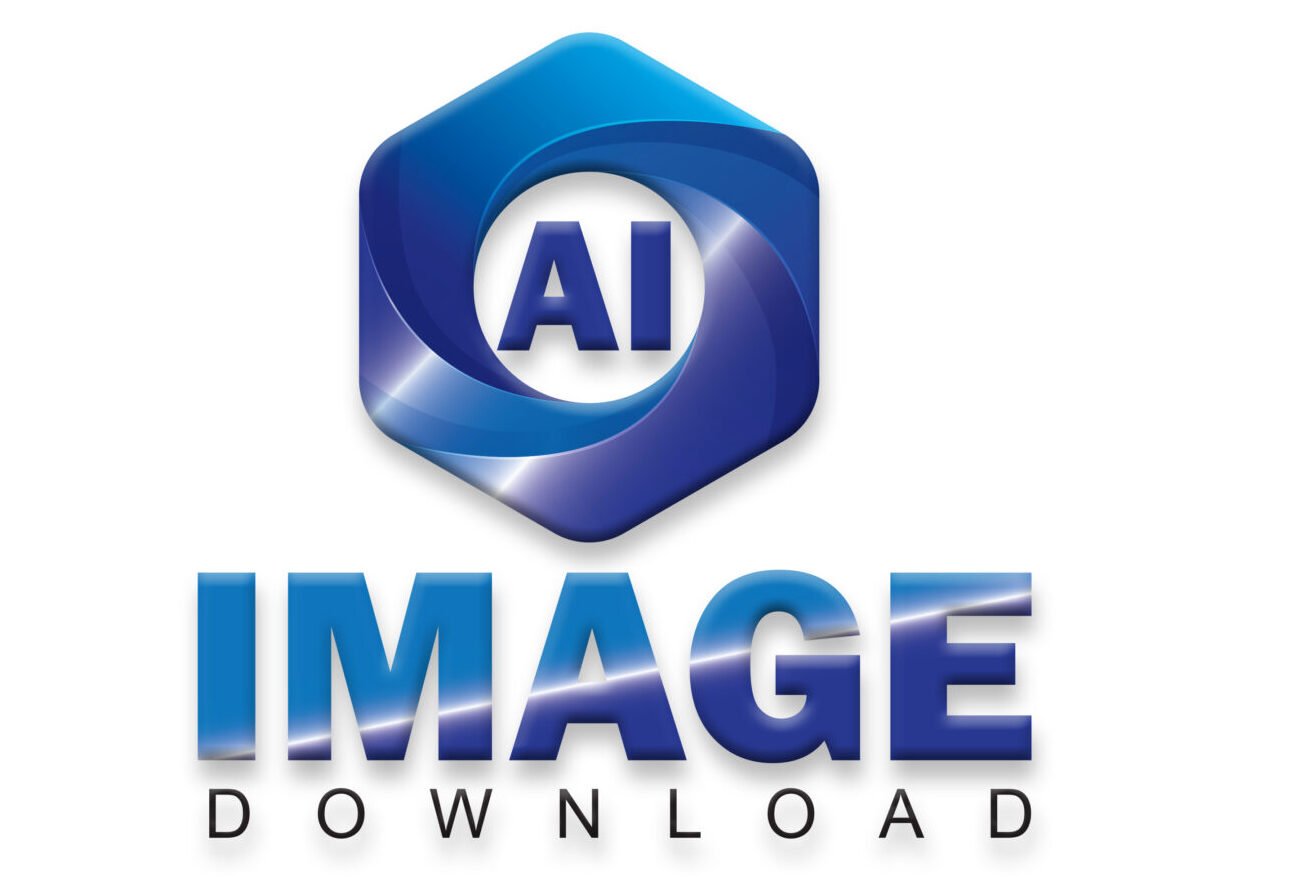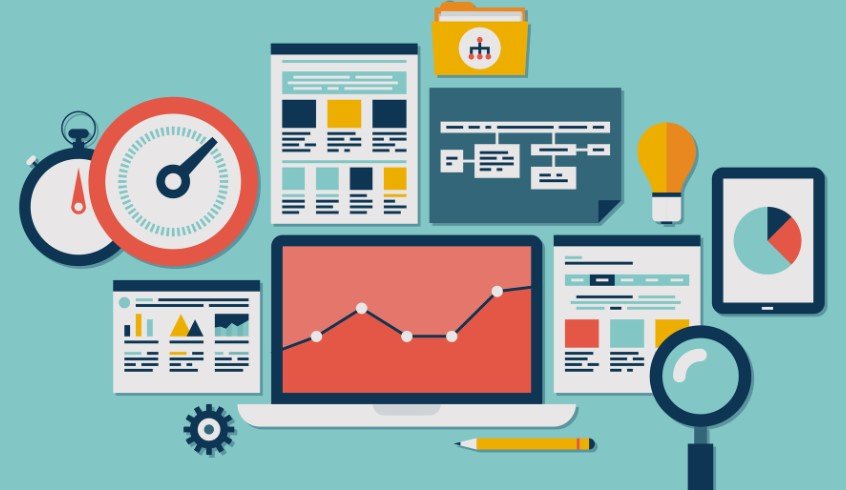AI marketing tools are software programs that utilize artificial intelligence to aid in marketing tasks. These tools encompass various functionalities, including content creation, ad targeting, marketing automation, chatbots, predictive analytics, and voice-based shopping.
They are instrumental in refining ad targeting, improving marketing automation, enhancing chatbot capabilities, and making data-driven decisions. Numerous AI marketing tools are available, such as Pipedrive, Attentive, Funnel.io, Walnut, Semrush, and Zapier, each offering unique features to support different marketing needs.
From content creation to personalized outreach and data integration, these tools cater to a wide array of marketing functions, making them indispensable for businesses seeking to leverage AI for their marketing endeavors.
AI Marketing Tools
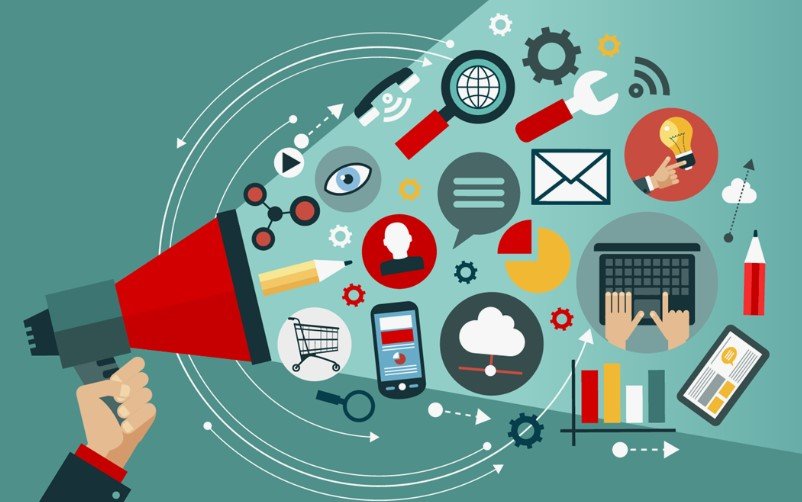
Table of Contents
Types of AI Marketing Tools
AI marketing tools encompass a range of software utilizing artificial intelligence to streamline marketing tasks. From content creation to ad targeting and chatbots, AI tools enhance research, decision-making, and personalized outreach, revolutionizing the marketing landscape. With improved automation and predictive analytics, AI marketing tools offer businesses valuable insights and increased efficiency.
In today’s digital world, AI marketing tools have become a game-changer for businesses. These tools help marketers automate various marketing tasks, predict market trends, and deliver personalized experiences to customers. There are various types of AI marketing tools available in the market, and each tool serves a different purpose. In this article, we will explore some of the most popular AI marketing tools and their functionalities.
Automated Email Marketing
Email marketing is an essential part of any business strategy, and automated email marketing tools can help marketers streamline their email campaigns. These tools use AI algorithms to send personalized emails to customers based on their behavior, preferences, and demographics. Automated email marketing tools can also help businesses increase customer engagement, reduce churn rates, and improve their overall email marketing ROI.
Predictive Analytics
Predictive analytics is another popular AI marketing tool that helps businesses predict customer behavior, market trends, and future business outcomes. These tools use machine learning algorithms to analyze large data sets and identify patterns that can help businesses make informed decisions. Predictive analytics tools can be used for various marketing tasks, such as lead scoring, customer segmentation, and churn prediction. By using predictive analytics, businesses can improve their marketing effectiveness and increase their revenue. In conclusion, AI marketing tools have revolutionized the way businesses approach marketing. By using these tools, businesses can automate various marketing tasks, gain valuable insights, and deliver personalized experiences to customers. Automated email marketing and predictive analytics are just a few examples of the many AI marketing tools available in the market. As AI technology continues to evolve, we can expect to see more advanced and sophisticated AI marketing tools in the future.
Benefits of AI Marketing Tools
AI marketing tools have revolutionized the way businesses approach marketing, offering a myriad of benefits that can significantly improve a company’s marketing strategy. From improved personalization to enhanced customer insights, AI tools have proven to be invaluable assets for businesses looking to elevate their marketing efforts.
Improved Personalization
One of the key benefits of AI marketing tools is their ability to enhance personalization in marketing campaigns. By leveraging AI algorithms, businesses can analyze customer data to create highly tailored and targeted marketing messages. This level of personalization not only fosters stronger customer relationships but also increases the likelihood of conversion and customer retention.
Enhanced Customer Insights
AI marketing tools provide businesses with invaluable insights into customer behavior and preferences. Through advanced data analysis and predictive analytics, AI tools can uncover patterns and trends that help businesses understand their target audience better. This deeper understanding enables businesses to craft more effective marketing strategies, ultimately leading to improved customer engagement and satisfaction.
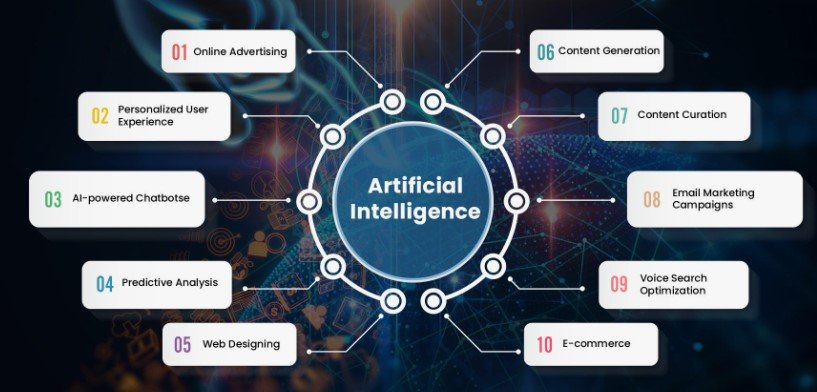
Challenges Of Implementing AI Marketing Tools
Implementing AI marketing tools can bring numerous benefits to businesses, but it also comes with its own set of challenges that need to be addressed. Let’s delve into some of the key hurdles that businesses may face when integrating AI marketing tools into their existing systems.
Data Privacy Concerns
Data privacy is a major concern when implementing AI marketing tools. Businesses must ensure that the data collected and processed by these tools comply with privacy regulations to maintain customer trust.
Integration With Existing Systems
Integrating AI marketing tools with existing systems can be a complex process. Ensuring seamless integration is crucial to avoid disruptions in marketing operations and data flow.
Case Studies
AI marketing tools are software that utilizes artificial intelligence to aid with marketing-related tasks. These tools can help with content creation, ad targeting, marketing automation, chatbots, and more. With the continued adoption of AI, marketers can improve research and decision-making, and utilize voice-based shopping and multimodal AI.
Company A: Ai Chatbots Success
The company implemented AI chatbots to enhance customer engagement and support. By leveraging AI technology, the company achieved a significant increase in customer satisfaction and reduced response times. The AI chatbots efficiently handled customer queries, leading to a 30% improvement in customer retention.
Company B: Ai-driven Campaign Optimization
Company B utilized AI-driven campaign optimization tools to analyze and optimize its marketing strategies. Through AI-powered data analysis and real-time insights, the company witnessed a 25% increase in conversion rates and a 20% decrease in customer acquisition costs. This AI-driven approach resulted in a substantial boost in overall marketing ROI.
Future Trends in AI Marketing Tools
As technology continues to advance, the future of AI marketing tools holds great promise for businesses looking to optimize their marketing strategies. From AI-powered voice search optimization to the integration of augmented reality in marketing, these developments are reshaping the way businesses engage with their audiences.
AI-powered voice Search Optimization
AI-powered voice search optimization is revolutionizing the way consumers interact with brands. With the increasing prevalence of virtual assistants and smart speakers, businesses are leveraging AI to ensure their content is optimized for voice search, enhancing their visibility in this rapidly growing space.
Augmented Reality In Marketing
Augmented reality (AR) is poised to become a prominent tool in the marketing arsenal. By integrating AR experiences into their campaigns, businesses can offer immersive and interactive content, providing consumers with a more engaging and personalized brand experience.
Furthermore, the future trends in AI marketing tools will also encompass:
- Enhanced ad targeting through further refinement
- Advanced AI marketing automation for streamlined processes
- Utilization of more capable chatbots for customer interactions
- Increased adoption of predictive analytics for informed decision-making
- Continued growth in voice-based shopping through AI
- Expanded use of multimodal AI for diverse marketing applications
Businesses seeking to stay ahead in the competitive landscape can benefit from embracing these future trends in AI marketing tools. Whether through leveraging AI-powered voice search optimization or integrating augmented reality experiences, these advancements are set to reshape marketing strategies and drive impactful engagement with consumers.
Best Practices For Using AI Marketing Tools
When leveraging AI marketing tools, adopting best practices is crucial for optimal results. Two key strategies for maximizing the efficiency and effectiveness of AI tools are Continuous Monitoring and Optimization and Human-AI Collaboration.
Continuous Monitoring And Optimization
Continuous monitoring of AI marketing tools is essential to ensure they are performing at their peak. Regularly reviewing metrics and making data-driven adjustments can lead to improved campaign outcomes.
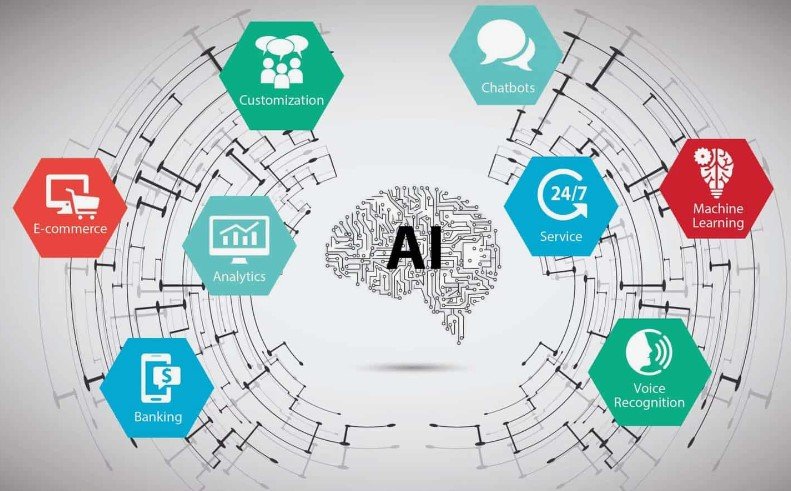
Human-ai Collaboration
Collaboration between human marketers and AI tools is vital for successful marketing campaigns. By combining human creativity and strategic thinking with AI’s analytical capabilities, businesses can achieve enhanced results.
AI marketing tools offer a range of benefits, from streamlining processes to enhancing customer targeting. Whether you are running an AI marketing course or seeking free AI tools for business, incorporating these best practices can elevate your marketing efforts.
- Improve ad targeting through AI tools.
- Utilize AI marketing automation for efficiency.
- Enhance customer engagement with AI-powered chatbots.
Stay ahead of the curve by embracing the latest trends in AI marketing, such as voice-based shopping and predictive analytics. Continuously evolving your strategies based on AI advancements can give your business a competitive edge.
For those looking to create the best AI advertising campaigns, harnessing the power of AI tools is essential. By implementing these best practices, businesses can unlock the full potential of AI marketing tools and drive impactful results.
Frequently Asked Questions
What are AI tools for marketing?
AI tools for marketing are software programs that utilize artificial intelligence to assist with marketing tasks. These tools enhance ad targeting, automate marketing, utilize chatbots, and predictive analytics, and improve decision-making. Popular examples include Taplio, SetSail, Tavus, and Lemlist for sales.
How is AI used in marketing?
AI is used in marketing for ad targeting, automation, chatbots, predictive analytics, research, decision-making, voice shopping, and multimodal AI.
Which AI tool is best for sales and marketing?
The best AI tool for sales and marketing depends on your specific needs and goals. Some popular options include Pipedrive, LeadBooster, Attentive, Taplio, SetSail, Tavus, and Lemlist. These tools offer features such as improved ad targeting, marketing automation, chatbots, and predictive analytics.
How to Use AI for Marketing in 2024?
In 2024, utilize AI for marketing through improved ad targeting, marketing automation, chatbots, predictive analytics, research, decision-making, voice-based shopping, and multimodal AI. AI marketing tools aid in idea generation, content research, social media, and SEO. Examples include Jasper, ChatGPT, and Grammarly for content creation.
Conclusion
AI marketing tools revolutionize marketing strategies through advanced data analytics and automation. Enhance your marketing efforts with AI-powered solutions for personalized outreach and improved ad targeting. Stay ahead of the curve with innovative AI tools for content creation and SEO optimization.
